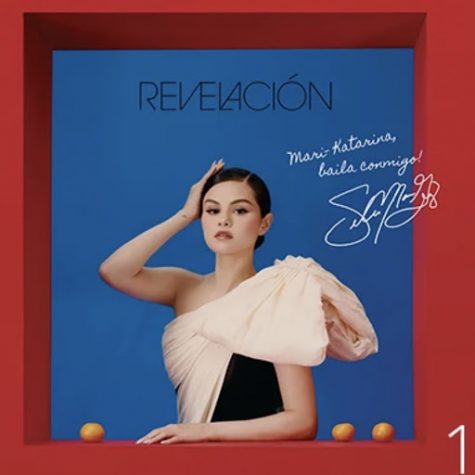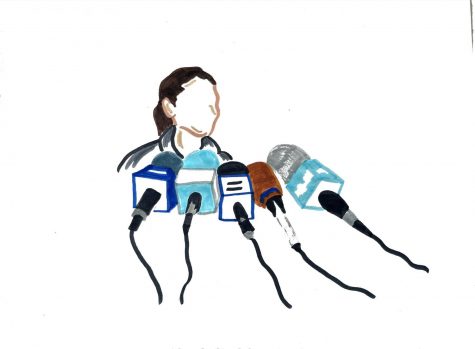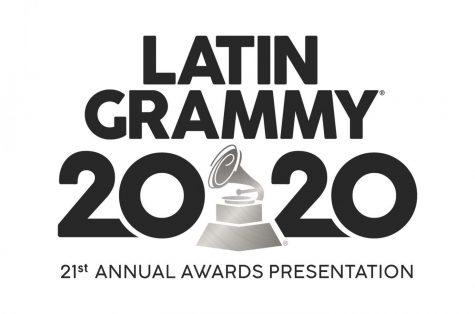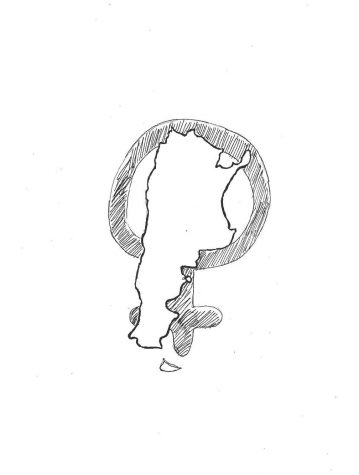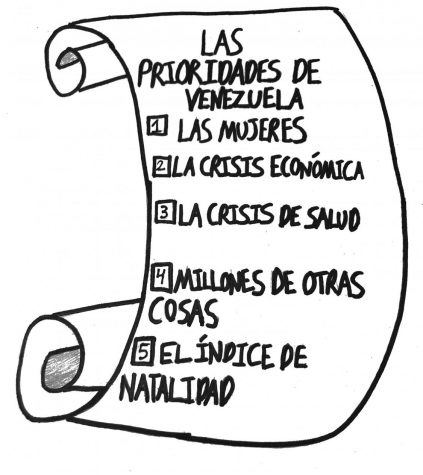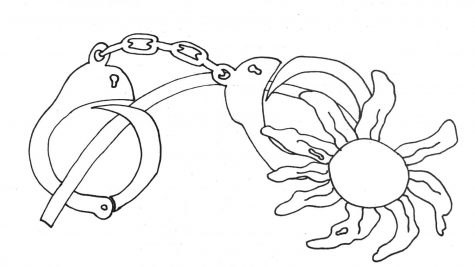Un aplauso para estos routines de comedia en español
March 30, 2022
Independiente del país, la cultura, o el idioma, la comedia puede conectar a la gente con la risa, experiencias compartidas y otras cosas relacionales. Los programas de comedia especializados sirven para enfocar que los cómicos tienen un lugar para compartir sus chistes y perspectivas con el mundo. Aquí hay tres de los mejores programas de comedia para mirar en Netflix.
 “ Una y No Más” de Joaquin Reyes
“ Una y No Más” de Joaquin Reyes
Una y No Más del comediante español Joaquín Reyes comienza con una explosión: una canción y un número de baile para prologar su rendimiento de humor observacional, anécdotas alegres y otros estallidos espontáneos musicales. Reyes es una buena comedia principalmente debido a su carisma, junto con su escritura cómica. La capacidad de Reyes para hacer imitaciones realistas de personas en su vida se suma a la calidad del acto, creando una sensación de encanto que hace que su actuación sea más teatral que una simple palabra hablada.
Con el uso de secuencias de tópicas y chistes diversos – como presentar a la Familia Real y jugando a “Trivial Pursuit”, Reyes tiene la capacidad de combinar temas dispares fácilmente y con humor, creando un sentido de continuidad en lugar de chistes aleatorios. En general, Una y No Más es una buena aportación al mundo de la comedia en vivo, con observaciones con las que uno se puede identificar y perspectivas nuevas.
“Estupidez compleja” de Malena Pichot
 En el especial de Netflix de la comediante argentina Malena Pichot “Estupidez Compleja”, explora las complejidades de ser una mujer moderna a través de chistes sobre temas como el aborto, el consentimiento y el feminismo. Pichot abre su programa preguntando abiertamente quién se identifica como feminista, prepara con éxito el escenario para un espectáculo lleno de chistes explícitos que comentan en las dificultades de ser una mujer y navegar en las citas, las relaciones y simplemente vivir en el mundo moderno mientras se mantienen los ideales feministas.
En el especial de Netflix de la comediante argentina Malena Pichot “Estupidez Compleja”, explora las complejidades de ser una mujer moderna a través de chistes sobre temas como el aborto, el consentimiento y el feminismo. Pichot abre su programa preguntando abiertamente quién se identifica como feminista, prepara con éxito el escenario para un espectáculo lleno de chistes explícitos que comentan en las dificultades de ser una mujer y navegar en las citas, las relaciones y simplemente vivir en el mundo moderno mientras se mantienen los ideales feministas.
Lo que diferencia la rutina de Pichot de las otras es su interactividad con el público y la forma en que utiliza el escenario. En un momento de su programa Pichot comenta y critica “tweets” que hablan sobre la ética del aborto e incluso utiliza la pantalla para presentar dos argumentos principales en contra del del aborto: el miedo a no nacer y el miedo a un “planeta vacío”. Pichot pone fin fácilmente a estos temores al enfatizar con humor la culpa que la gente impone a las mujeres por ambos problemas, en lugar de asumir la responsabilidad personal. La capacidad de Pichot para hablar de temas delicados y crear chistes que expresan sus ideas de manera humorística, al mismo tiempo que mantiene un carácter dramático, es lo que hace que su actuación pase de simplemente buena a excelente.
Odio de Dani Rovira
“Odio” de Dani Rovira en Netflix explora el “odio” que las personas tienen entre sí a través del uso de chistes inteligentes. “Odio” es una comedia en vivo única: tiene un uso inventivo de la iluminación, un diseño maduro del escenario, junto con el humor de Rovira. Inmediatamente, Rovira habla de los dos últimos años de su vida: además de haber pasado un confinamiento normal, él también luchó contra el cáncer, sufrió infecciones de oído mientras estaba en Grecia y pasó sus últimos cumpleaños solo en cuarentena. Él habla de sus dificultades con la audiencia para expresar que el público tiene que ser capaz de tolerar chistes ofensivos.
El tema del “odio” que está presente en todo el programa, siempre con la intención de ser cómico, se ve reforzado cuando Rovira crea referencias a las temas sociales como la cultura de la cancelación ( “cancel culture”), el periodismo sensacionalista y las redes sociales, todo lo cual crea amargura y odio en la sociedad. El equilibrio que Rovira es capaz de emplear al dar mensajes importantes sobre la ridiculez del odio junto con la comedia real es esencial para crear un espectáculo que es entretenido pero también significativo. El “Odio” en el programa de Rovira se percibe como más real que en otros programas de comedia porque combina problemas reales con buena comedia humorística.
English:
Regardless of country, language or culture, comedy can connect people through laughter and shared experiences. Comedy specials serve as a way to recognize comedians in a more refined light and give them a platform to share their jokes and perspectives with the world. Here are three of the best Spanish stand-up comedy specials available to watch on Netflix.
Una y No Más de Joaquin Reyes
“Una y No Más” by Spanish comedian Joaquin Reyes opens with a bang: a song and dance number to preface his show filled with observational humor, lighthearted anecdotes and spontaneous bursts of singing. Reyes’ comedy lands well, mostly due to his physicality and charisma, alongside his well-crafted writing. Reyes’ ability to do impressions adds to the quality of his act, creating a sense of charm that makes his set more theatrical rather than simply spoken word.
Made up of sequences of diverse topics and jokes —such as meeting the royal family and playing trivial pursuit —Reyes’ “Una y No Más” is able to combine seemingly disparate topics together with ease and humor, creating a sense of continuity rather than several jokes just stitched together. As a whole, “Una y No Más” is a solid member of the stand-up comedy sphere, offering relatable observations and new perspectives on everyday life and beyond.
Estupidez compleja de Malena Pichot
In Argentinian comedian Malena Pichot’s Netflix special “Estupidez Compleja,” Pichot explores the complexities of being a modern-day woman through humor surrounding topics such as abortion, consent and feminism. Opening her set by asking who identifies as a feminist sets the stage for a show filled with raunchy jokes commenting on the difficulties of navigating dating, relationships and simply living in the modern world while still staying “true to the cause” of feminist ideals.
Pichot’s routine is especially unique due to her interactivity with the audience and how she uses the stage. At one point, Pichot comments on tweets projected behind her that question the ethics of abortion. She even uses the screen to project what she sees as the two main arguments against the procedure: the fear of babies not being born and the fear of creating an “empty planet.” Pichot has a clear ability to take sensitive topics, like abortion, and create jokes that push the envelope. She easily puts these fears to rest by humorously emphasizing the blame people impose on women, rather than taking personal responsibility, taking her show from simply good to great.
Hate de Dani Rovira
Dani Rovira’s “Hate” explores the hate people have for each other through clever witticisms and Rovira’s laid-back stage presence. Hate serves as a more unconventional standup comedy set through its inventive use of lighting and mature set design alongside Rovira’s humor. Right off the bat, Rovira describes the past two years he has gone through; not only has he experienced quarantining just as everyone else, but he also underwent cancer treatment, suffered ear infections while making a movie in Greece and spent his last birthday alone in quarantine. He uses these hardships as a way to jokingly tell his audience that they need to be able to cope with more offensive jokes, rather than criticize every aspect of his comedy.
The theme of hate that is present throughout the set, though of course intended to be comedic, adds importance to the jokesas Rovira references prominent social issues like cancel culture, sensationalized journalism and social media, all of which feed into bitterness and “hatred” across society as a whole. The balance that Rovira employs in relaying both important messages about the ridiculousness of hate alongside actual comedy is key in creating a show that is both entertaining as well as meaningful. “Hate” transcends more pedestrian stand-up comedy performances that may be funny, but only scratch at the surface of real issues and pain points.









